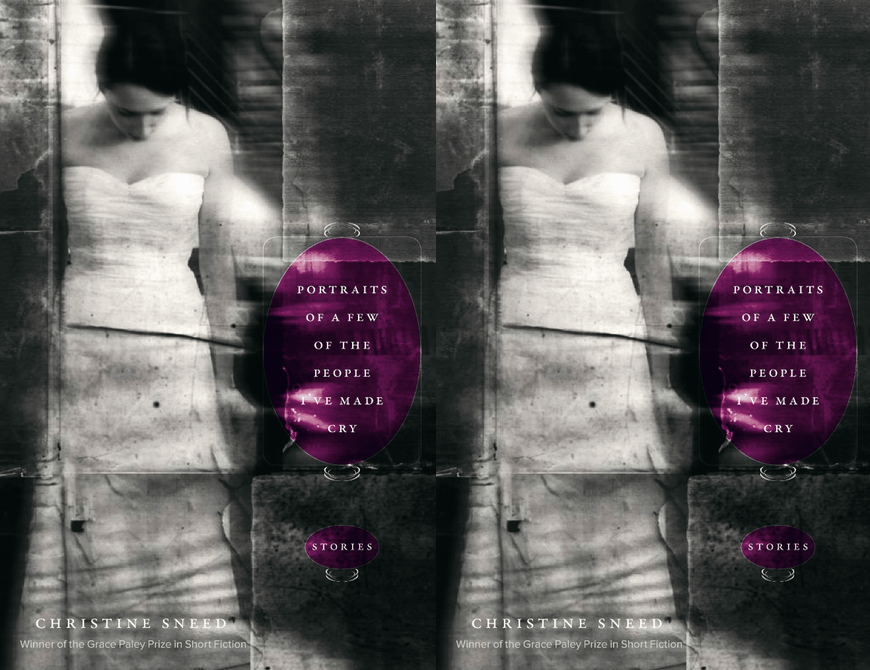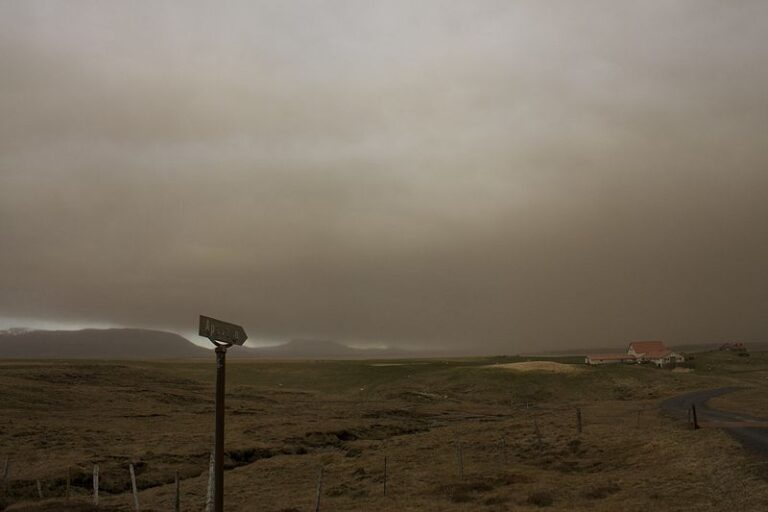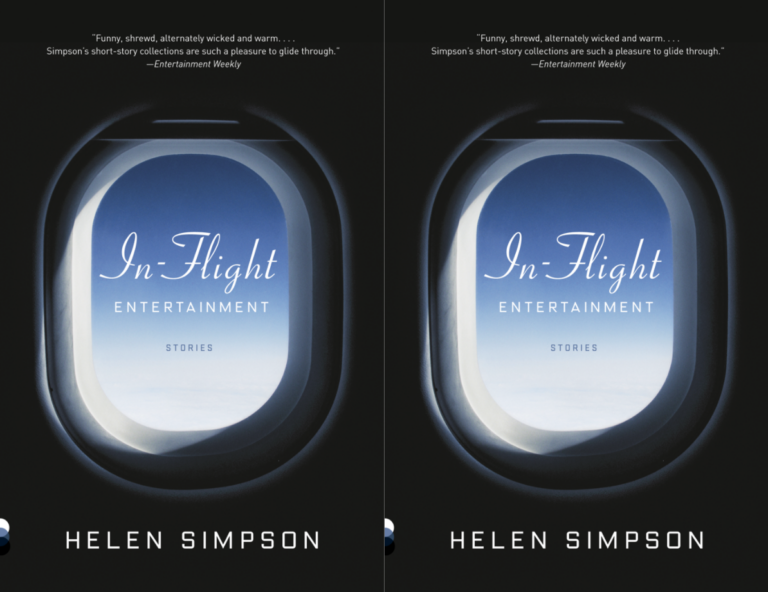An Interview with Zacharis Award Winner Christine Sneed

We are happy to announce that Christine Sneed has won the twenty-first John C. Zacharis First Book Award for her short story collection, Portraits of a Few of the People I’ve Made Cry (University of Massachusetts Press, 2010). The $1,500 award, named after Emerson College’s former president, honors the best debut book by a Ploughshares writer. Sneed’s story, “The Prettiest Girls,” appeared in the Winter 2010-11 issue, and she also wrote some guest posts for our blog. We talked over the phone about literary influences, marriage, fame, and her new book, a novel-in-stories about an aging actor called Little Known Facts that will be appearing from Bloomsbury in Spring 2013.
Ploughshares: I think we can start with your early life. Can you tell us a little about where you grew up?
Christine Sneed: Well, I’m a Midwesterner. I guess you could say a Midwesterner from birth. I lived in Green Bay, Wisconsin until I was eleven, and then my parents and I moved to Libertyville, Illinois, where they still live. That’s a suburb of Chicago, about 45 minutes to an hour north of the city. And I was an only child. Probably not by design, that’s just how it worked out. My mother is a veterinarian, and she got her veterinary degree during the four years I was in high school. So she was in Madison during the week, and then would come home on the weekends to Libertyville. I had a lot of independence growing up, and I really liked that. I didn’t have any siblings telling on me if I did something I shouldn’t have done.
Freedom, a lot of freedom. But my mother is also from a family of nine kids. I had a lot of cousins, a lot of friends and neighbors too, so I didn’t feel like I was an only child outcast or anything like that.
PS: Did your family influence your literary tastes at all?
CS: Definitely. My father—he was a journalism major in college—and both of my parents read all of the time, but my dad in particular, and he introduced me to many of the writers that I really admire, like Jim Harrison. I don’t know if he’s responsible for me getting into John Updike, I can’t remember, but I like John Updike’s work a lot, and he’s influenced my work probably more than any other writer. Alice Munro, too. Some of the usual suspects. Deborah Eisenberg.
My parents always had books in the house, and they always gave me books as gifts. I kept a journal: love poems and things like that, unrequited crushes. I think there’s a lot of respect in my household for literature. I went to the library all of the time when I was a kid.
PS: When did you start thinking about being a writer?
CS: Well, I think I started thinking about it when I was eleven or twelve, but it wasn’t until my junior year in college, when I studied in Strasbourg, that I realized that I could become a writer if I actually sat down and wrote frequently. I didn’t have to ask anyone for permission—I could just do it. That year overseas, I was taken out of the usual environment that I was comfortable with, and also traveled around Europe. That was the year when I started thinking about things differently, and seeing the possibilities that were there in a way that I hadn’t before.
PS: I think I read that you’d studied French and International Business. What were you planning on doing, at that point?
CS: (laughs) I don’t know. I think I just thought I could get a job—some glamorous job working in a high-rise and wearing nice suits and speaking French, making money, and it didn’t happen. I also think I was already suspicious of the corporate world. I wasn’t very political yet. I really didn’t become politically conscious until my mid- to late-20s when I was in grad school.
I got a job right out of Georgetown for two years, before I went to Indiana, working as a secretary for a company that sold highway safety products, and I worked for the international marketing VP. I had the chance to speak French with the French distributors. But it was a lowly secretarial job where I got paid $22,000–this was the early 90s, so it wasn’t as little as it is now. My degree was not really being put to good use, we’ll put it that way.
PS: I think some of the stories in the collection are from, is it 2002?
CS: Oh yeah, one of them, “Walled City,” is old—I realized after I won the Paley Prize that it was the oldest story. It’s also the one that’s gotten the most criticism. People who read it and liked the other stories are like, “this is such a weird story. Why is it in there?” But I thought—I really like satire! It’s probably my natural mode, in a way. I really enjoy it. I was thinking, it’s like my next book. I finished this novel about polyandry, which is the female counterpart to polygamy. And it’s a satire. And it satirizes American hypocrisy, especially related to gender roles and female sexuality.
So my thought was, I’m kind of going in this direction. I might as well end the collection with this story that’s satire, but still has serious parts to it, I hope. But, yes, it’s the oldest one. And “Quality of Life” is pretty old too—I think I wrote it in 2003. “Alex Rice Inc.” is actually the most recent story—I wrote it just a couple months before I entered the manuscript in the contest.
PS: Incidentally, did you choose the photograph on the cover of the collection?
CS: Yes. Yes, I did.
PS: Because I was curious about it. All of the characters are unmarried and not really concerned about it—and that is a wedding dress, right? I was just curious how you felt [the image] connected with the stories in the collection.
CS: I don’t know if it’s a wedding dress! I found the picture … it was taken by this art photographer in Denver named Terri Bell. It’s called “Boundaries” – I’ve never asked her, actually, if it’s a wedding dress. I just like the way the woman’s head is downcast, and she’s looking at her feet, it seems. I thought it was a romantic image. I found it on flickr.com at the suggestion of Bruce Wilcox, the director of U Mass Press.
PS: So you hadn’t thought of it as a wedding dress…
CS: No! I think someone asked me, is that a wedding dress and is that you? And I said, No, it’s a stranger. And the photographer was a stranger too until we contacted her and asked her for permission. But you’re right. I realized later that a lot of the characters aren’t particularly worried about marriage, or they’re divorced. And that’s certainly my bias. Because I’ve never been married and I’ve never really wanted to get married, and I realize this is sort of atypical for a heterosexual female in middle-class America. But people don’t often examine why they want to get married. To me, it’s kind of scary when you start thinking about it.
I think I just naturally like writing about people who aren’t married. Married life is complicated, and I’ve certainly written about a lot of divorced characters, but I just don’t know if it’s really possible to be completely content like we’re told that we should be when we’re married.
Some of these stories—and the novel, the polyandry novel—were written after I read Laura Kipnis’s book Against Love. I don’t know if you’ve read it, or if you know her work, but she is just brilliant, and she is funny and she is so outrageous, and people I think probably hate her because she says things that no one wants to face. And this book Against Love is so smart. She writes about how society is geared towards monogamy and straight marriage because it makes the economy work better. And it’s simply impossible to assume you’re going to be happy with one person for your entire life, and that they can fulfill every role—like they can be your friend, your lover, your accountant, and you know, your helpmate, and all these things that we need other people for. She makes some really sterling points that I think are very commonsensical, but they’re also a bit frightening.
PS: How do some of those ideas play into your novel? I don’t know if it’s still a work in progress…
CS: No, it’s done. And my agent told me that it wouldn’t sell, because it’s too strange, even though he really liked it. He tried to sell it to a few editors who we were trying to sell the paperback rights to Portraits to. And they said, “We love the collection, but the novel’s too weird, so we can’t buy it.” But the novel, the other one that I’m writing right now, is much safer in some ways.
The polyandry novel is called O Husbands! It’s about this behaviorist who decides that she’s going to marry three men. And they’ll all know about it because she’s going to advertise the experiment as a domesticity study. So she finds three men, whom she finds attractive for various reasons, and marries them in mock ceremonies. She assumes that this is going to be a really good recipe for domestic bliss. And of course it’s not at all. It’s a satire, as I said, about all of the stereotypes related to female and male sexuality, how America … is so conservative, really, when it comes to romantic relationships and the way women are portrayed by the media. It’s kind of a feminist novel, and I think that may be one of the reasons it scared off the few editors who read it.
PS: And what’s your other novel about?
CS: Well, it’s a novel-in-stories. I think there’s going to be ten or eleven chapters, and the main focus of the stories is this actor. He’s like Harrison Ford. I didn’t really base him on Harrison Ford, because I don’t know much about Ford’s personal life, but someone of his stature with his accomplishments. And it’s about his relationships with his two grown children. One of whom is his son, who’s very jealous of him. And he also can’t find his own career that he’s happy with, so he’s just sort of fumbling through his life. And his daughter who’s a very good student, about to finish her MD. And his two ex-wives and his current girlfriend, who’s like thirty years younger than he is. It’s been a really fun book to write. So I’m excited about it. I feel like it’s much more, as I said, safe, compared to the satire of the novel.
PS: There’s a quote that I read from an interview that I think you did with yourself. And I found it really interesting and was wondering if you could talk about it a little. You said that “self-respect doesn’t figure into romantic relationships in the way it often does in platonic ones.” And I was wondering what you meant by that.
CS: Well, I think people end up abasing themselves when they’re involved with people that they know they shouldn’t be involved with. I was thinking about how people jump into bed with someone they barely know and potentially expose themselves to really quite terrible dangers, particularly health-wise, not to mention emotionally they’re more vulnerable too. I think there’s this trend, especially in the way that many of the movies and TV shows that people are really attached to portray sexual relationships: “Oh, it’s no big deal.” I mean, I’m not prudish. You can probably tell from my stories that I don’t shy away from writing about sex. But I also think that people are so willing to do things that they know are bad for them, because they’re so desperate to be in a relationship, or they’re so desperate to be paid attention to. And I’m not exempting myself from that. I certainly have things in my own past that I regret.
It’s interesting to me, and sad too, what people are afraid of…for example, if you have a friend, a female friend, who went out with someone and ended up in bed with him. Then the next day she says, Oh, I don’t know if I should call him, oh, I don’t want to bother him. And when my friends have said that to me over the years, I say, You just had sex with him, you can call him if you want! Because, I’m sorry, you just did something very intimate with him, and you have every right to call him. If he doesn’t want to call you, then just drop him, because that’s ridiculous.
PS: In your recent stories, are you looking at what happens when fame enters that equation?
CS: Yeah. I’m trying not to glamorize it too much, but certainly some of that happens, because it’s true, if you’re a wealthy, beautiful person who’s in the movies, and people come and sit in the dark for two hours and watch you, that’s exciting. Obviously, a lot of people aspire to that. But at the same time, I think about all of the exhausting things, if you’re famous, that you have to deal with. And also the fact that people who are famous are often overwhelmed by personal problems. Look at Paris Hilton, or Mel Gibson, or all the people who’ve had to go into rehab over the years. If fame were what it seems to be, then these people would not have so many problems. The fact that it sells us these myths that people buy wholesale and don’t really examine…that’s what I’m doing in these stories. I hope I’m making it clear that despite how exciting being a film star probably is, these people are not perfect and their lives aren’t either.
PS: Have you tried any screenwriting? I noticed there’s a couple of screenwriters in the collection, or aspiring screenwriters.
CS: I have, but very little. I took a class. I wanted to learn the format in case I ever wanted to. And you know, I admire really good screenwriters like Charlie Kaufman and … I can’t think of any others right now! Wes Anderson, you know, I like, and Sofia Coppolla. I really liked Lost in Translation. I did not like Somewhere. She’s writing about the same stuff that I’m writing about, but I thought she was doing it in such a boring way. I was so disappointed by that movie.
PS: Oh, I didn’t see that one.
CS: It’s so dull! I’m sure it was released in Boston, probably in an art theater, as it was in Chicago. I think it was last fall when it came out. It was all the usual tropes about this young male actor who’s popular and very wealthy, but he is living this empty life. It was just the usual clichés about fame. I think that people that [are] famous are just as insecure as the next person, if not more insecure. Because for them the stakes are so much higher. And that’s what’s really interesting to me when I write about these characters: how can I work with these monumental-size realities and still make this character seem like a real person?
PS: What’s your writing routine like now?
CS: Since I decided I did not want to teach any summer classes, I usually write in the afternoons. In the mornings I usually go to the gym and then send emails. I know that some writers are very painstaking. One of my friends has told me that she writes very slowly, and she’s been working on a novel for about six years. I’m not like that at all—I tend to write fast, when I have the time really to focus. I also edit as I go. I think usually by the time I’m done with the first draft of a story it’s already been edited pretty closely, and often I let them sit for a few weeks or a month or two before I send them out, because I need to not know them as well as I do right after I finish them.
I think a lot of people find writing really painful, and I find the idea of sitting down to write painful, but once I start writing I really love it. Most of the time.
PS: I’ve always been puzzled by things like that. I always want to say, “maybe you should do something else, if you hate it so much.”
CS: I know! I really like it. I don’t know, there’s a lot of things that I’m interested in, and I’m so curious about other people. I’m really nosy, I suppose. I like to know everything I can about people. So instead of bothering strangers and my friends for private information, I can make all this stuff up. It’s really fun.
I’ve been doing this now for sixteen years or so. And you know, I hope something will get a little easier after you’ve been doing it for that long. You know John Updike, one of my idols, he was really productive, and his stuff is beautifully written. I think you can just hope … I hope we can become better, and I think we do, if we stick with it.


